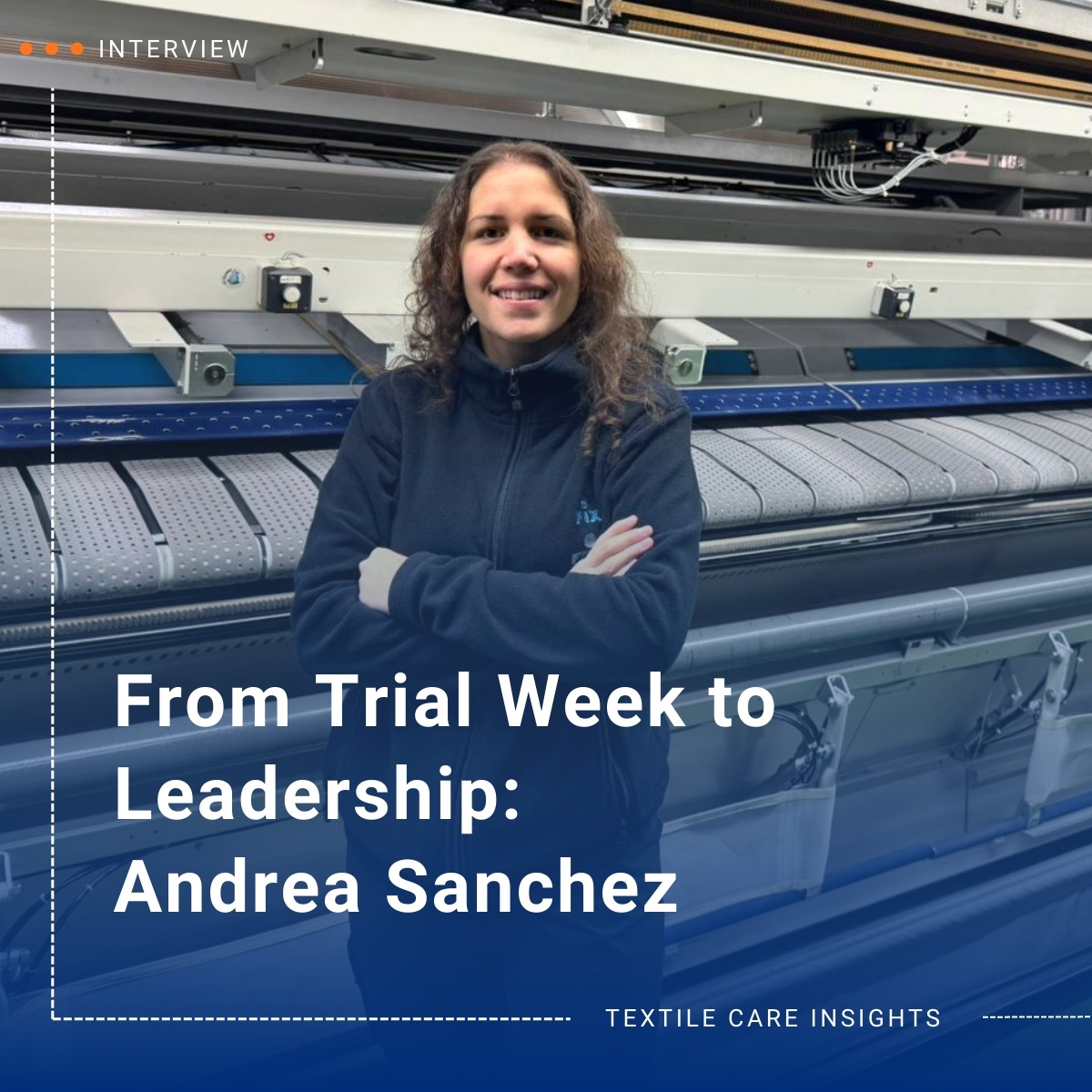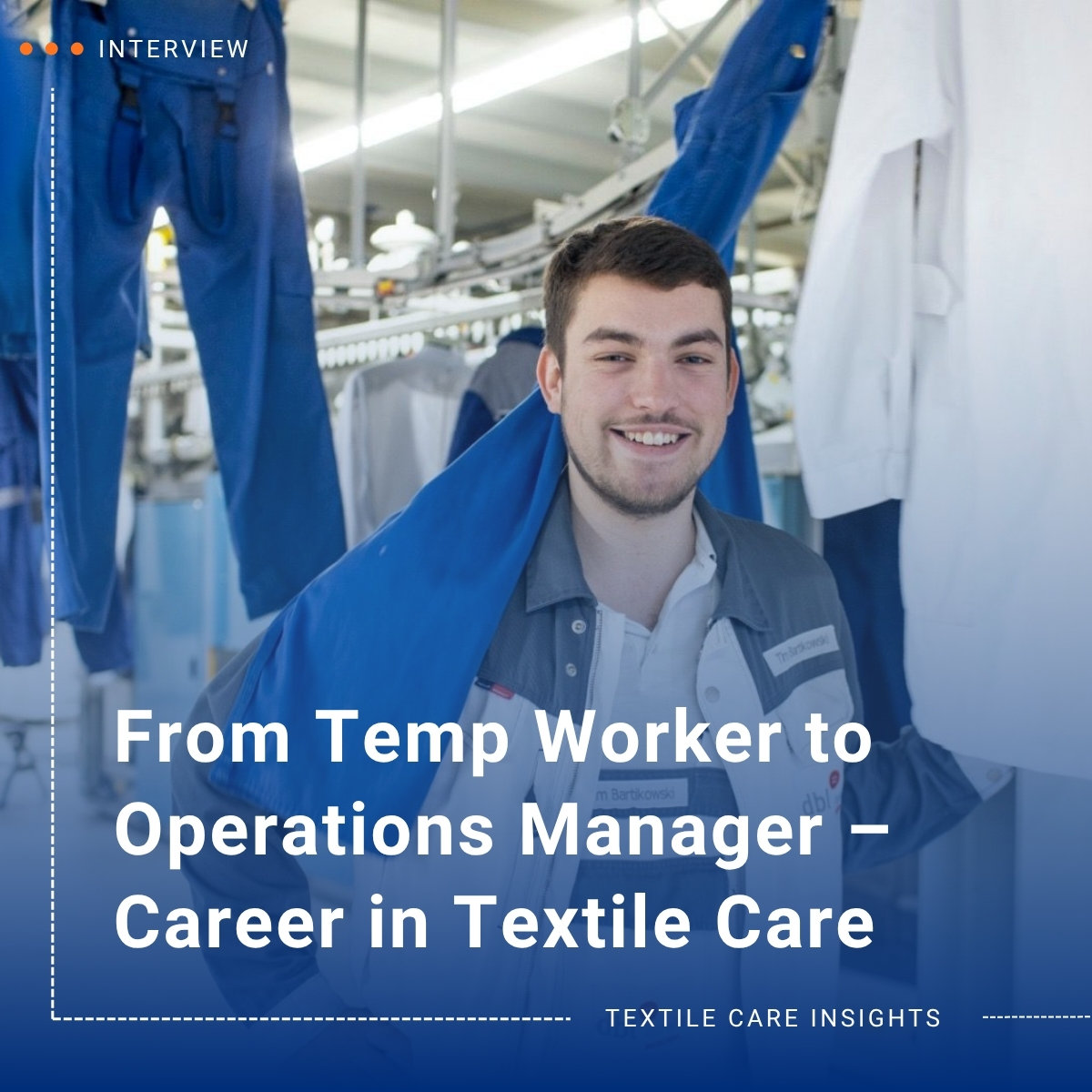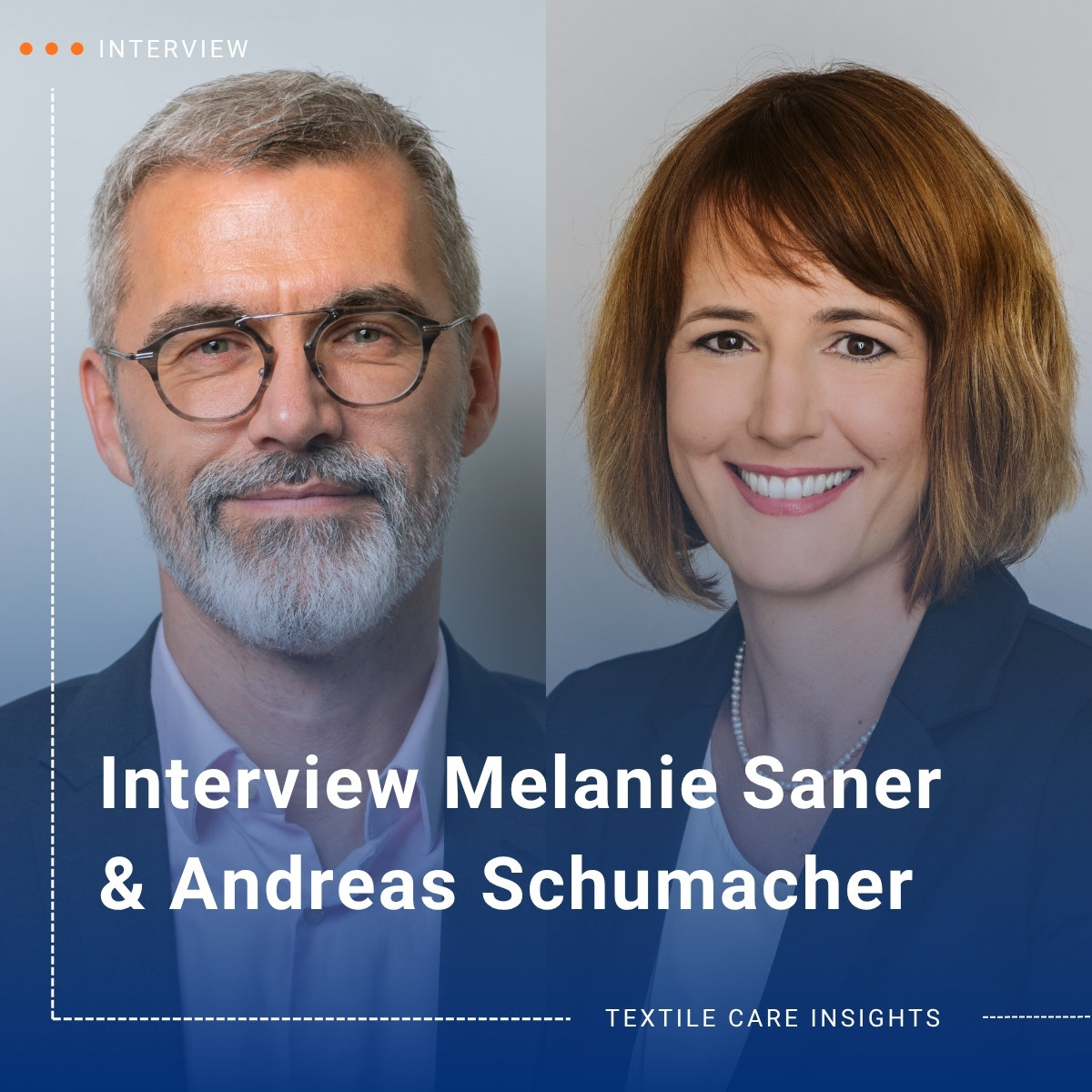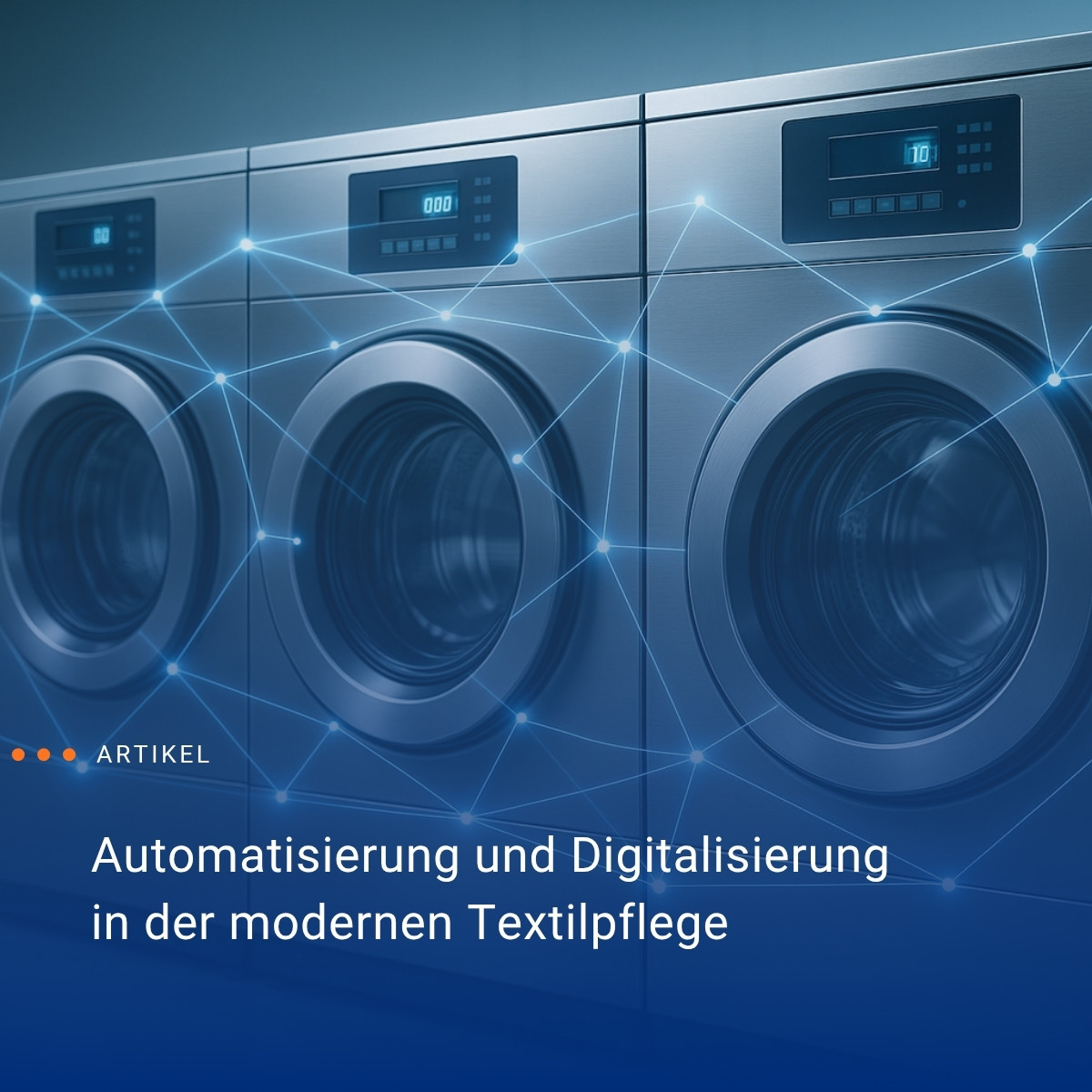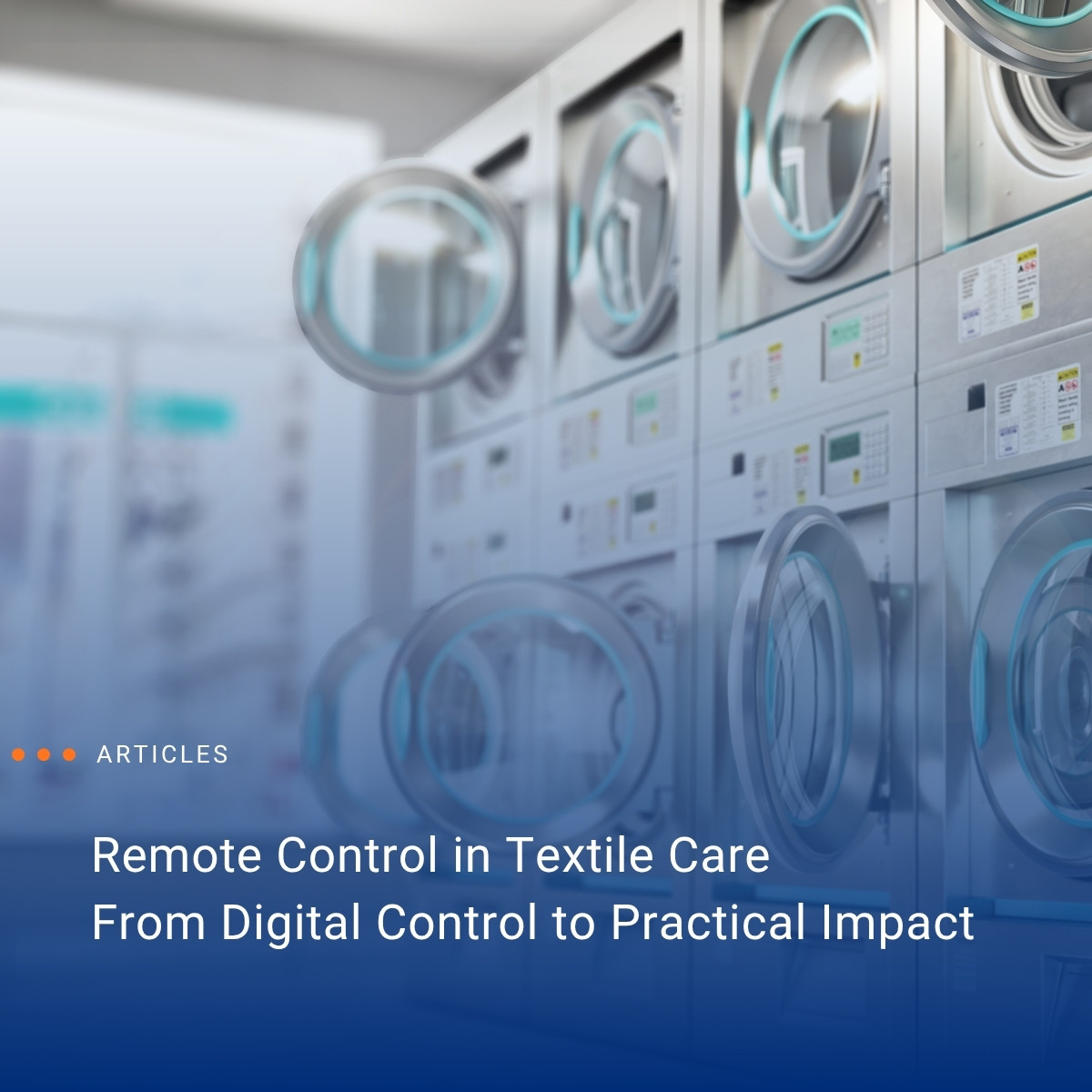Reading time: 4 minutes
When handling textiles, you need to know what you are doing. Different fibres, for example, cannot be mixed at will, yarns cannot be processed into a fabric indiscriminately, and not all textiles can be dyed or finished using identical methods. Naturally, there is also no universal procedure for caring for a silk blouse, a firefighter’s uniform or hotel linen. Yet although all processes of textile manufacturing and processing are interconnected, a holistic view of the entire value chain is not part of any curriculum. Therefore, in most production companies, the processes of a laundry and the related requirements for the goods are not known. Conversely, textile care companies often lack knowledge about the manufacturing and processing of fibres, yarns and fabrics. Fortunately, these knowledge gaps can be closed. Specialist seminars, in which practical knowledge is taught in companies or laboratories, and online learning platforms that provide content around the clock make this possible. Online portals have another advantage: as soon as the content is available in different languages, employees who are not yet proficient in the employer’s national language can more easily acquire the necessary know-how.
Many training modules supported by regional or European funding programmes pursue the idea of awakening interest and understanding for the wonders of the textile world. However, there are also economic reasons behind them. Training and further education programmes are intended to help combat the shortage of skilled workers, which has negative effects on the companies concerned: it hinders innovation, reduces efficiency and impairs growth. A good training programme can help mitigate these effects. It can assist in qualifying career changers as skilled workers and in developing skilled workers into experts. It can make it easier for unemployed people to enter a new working environment and, more generally, inspire more people to become enthusiastic about the industry. That is what makes the courses, training sessions and seminars so important. The following selection provides a brief insight into specific learning and training opportunities for textile care and textile manufacturing.
e-washboard
| Website | https://www.e-washboard.eu/ |
| Founded / Established since | 2022 |
| Responsible for content | German Textile Cleaning Association (DTV, Bonn), initiated as a joint initiative of the textile care associations of Belgium, Germany, the Czech Republic and Sweden, as well as the European Textile Service Association (ETSA) |
| Target participants | Employees in the textile care industry |
| Course offering | Online courses on topics such as professional conduct, health promotion, workplace communication, goods reception, laundry sorting, batch preparation, handling chemicals, machine loading, use of detergents and solvents, programme selection, machine unloading, basics of finishing, hand ironing, mangling, tunnel finishing, shirt finishing & topper, pressing |
| Available formats | Online courses |
| Available languages | German, English, French, Dutch, Czech, Romanian |
| Costs | Free of charge |
| Qualification / Certificate | Digital certificate |
wfk - Wissenstransfer
| Website | https://wfk.de/transfer/seminare-workshops-konferenzen/ |
| Founded / Established since | Several decades ago |
| Responsible for content | wfk - Cleaning Technology Institute e.V. (Krefeld) |
| Target participants | Employees in the commercial textile care industry and career changers |
| Course offering |
|
| Available formats | Online and in-person courses, also available on-site at customer locations |
| Available languages | German, English on request |
| Costs | Fee-based |
| Qualification / Certificate | Certificate of participation upon successful completion of the workshop exam |
Hohenstein Academy
| Website | https://www.hohenstein-academy.com/ |
| Founded / Established since | 1946, e-learning since 2019 |
| Responsible for content | Hohenstein Academy |
| Target participants | Laundry employees from the textile care industry; career changers seeking further training opportunities; professionals looking to upskill; jobseekers, unemployed persons and individuals in short-time work |
| Course offering |
|
| Available formats | Online and hybrid |
| Available languages | Usually German; online hygiene certificate courses also available in English, Chinese and Slovenian |
| Costs | Fee-based |
| Qualification / Certificate | Certificate for corresponding certificate seminars |
| Special feature | The Hohenstein Academy is accredited under AZAV (Accreditation and Licensing Regulation for Employment Promotion) and, as a nationally recognised training provider, can accept vouchers from the Federal Employment Agency. |
textil trainer
| Website | https://textil-trainer.de |
| Founded / Established since | 2020 |
| Responsible for content | Chair of Textile Technologies at Chemnitz University of Technology |
| Target participants | Trainees, students and professionals from various sectors of the textile and fashion industry |
| Course offering |
|
| Available formats | Online |
| Available languages | 40 courses available in German, 25 of which are also offered in English; by mid-2027, around 55–60 bilingual courses are planned |
| Costs | Free of charge |
| Qualification / Certificate | Certificate or confirmation of participation as proof that participants have studied the topic at an academic level |
GermanFashionAkademie
| Website | https://germanfashion-akademie.de/ |
| Founded / Established since | 2016 (industry events offered since the founding of the GermanFashion Association in 2003) |
| Responsible for content | GermanFashion (Cologne), in cooperation with the Chamber of Industry and Commerce (IHK), universities, institutes, and the Confederation of the German Textile and Fashion Industry (textil+mode, Berlin) |
| Target participants | Employees, managing directors and executives in the clothing industry, as well as individuals interested in the German apparel sector, with or without membership in the GermanFashion Association |
| Course offering |
|
| Available formats | Online and face-to-face events |
| Available languages | German |
| Costs | Fee-based |
| Qualification / Certificate | Certificate of participation for regular events Certified IHK qualification for specialist training programmes |


